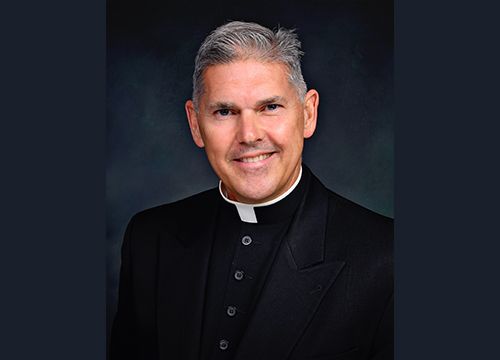Second Sunday of Lent – Year B: Gen 22:1-2, 9a, 10-13, 15-18; Ps 116:10, 15, 16-17, 18-19; Rom 8:31b-34; Mk 9:2-10
Apart from Hermione Granger in the Harry Potter novels, most of us do not like tests. Last week, we had the account of Jesus’ testing in the wilderness, and this week our first reading begins succinctly, “God put Abraham to the test.”
In a sense, we can understand the devil in the role of testing Jesus, for he is the tempter. But something in us is offended by seeing God as testing us, and especially this seemingly inhuman test of Abraham in ordering him to sacrifice his son Isaac.
Isn’t the role of a good teacher rather to empower and encourage a student, rather than passing what seems a cruel and arbitrary test? Yet, the Scriptures show us again and again that God puts his loved ones to the test.
Israel was tested in the wilderness to renew their covenant faithfulness. God permitted alien peoples with strange gods to continue to inhabit the promised land to see if Israel would be faithful or chase after false gods. The tribulation of the exile is used by God to transform Israel from a faithless people into a faithful remnant.
From the Scriptures, we see that God’s tests may involve suffering and trial, but they are never cruel or arbitrary. God’s tests are medicinal and reparative. They are meant to wake us up to the reality of our situation before we totally lose our way.
This includes the test given to Abraham. We are all too susceptible to seeing our security in the things of this world, our savings, our reputations, our plans. This is a danger even when we are dealing with good things such as our generativity.
With the fulfillment of the promise of descendants, Abraham could be tempted to no longer place his trust in God alone. Rather, now the future seems set. His memory and family seem secure with the birth of Isaac. The truth is that when we rely primarily on earthly things, earthly powers, earthly success, all is lost.
The test that God puts before Abraham is meant to wake him up to the danger in which he finds himself. The test that Abraham will face will require him to deny the role of his own part in the future that God promises.
Isaac is a symbol for Abraham of all Abraham’s own efforts to secure his future. This is what Abraham is rejecting as he lifts the knife to sacrifice his son. But then God restores Isaac to Abraham; he receives his son back not as a product of his own efforts, but as pure gift.
On Good Friday, God will fully enact what is forestalled at Mount Moriah. Jesus’ death on the cross fulfills the sacrifice requested of Abraham, and his resurrection on Easter Sunday completes the true restoration of Isaac to Abraham.
When Jesus faces his test in the desert, he puts bread, power and honor in their property perspective of a life given over to the will of God. What Abraham is facing is a model for us of embracing the tests we are given that wake us up to our proper relationship with our loving God, and upon whom we depend for everything. These tests are a gift to us — lest all be lost by our reliance on the wrong things.
Msgr. Timothy Keeney is pastor of Incarnation, Charlottesville.

